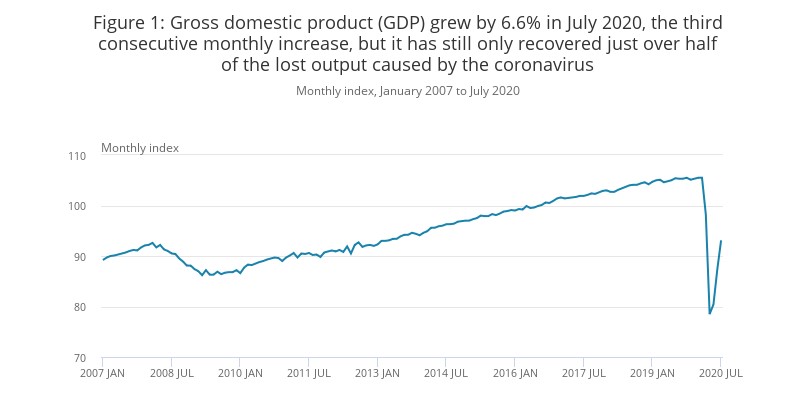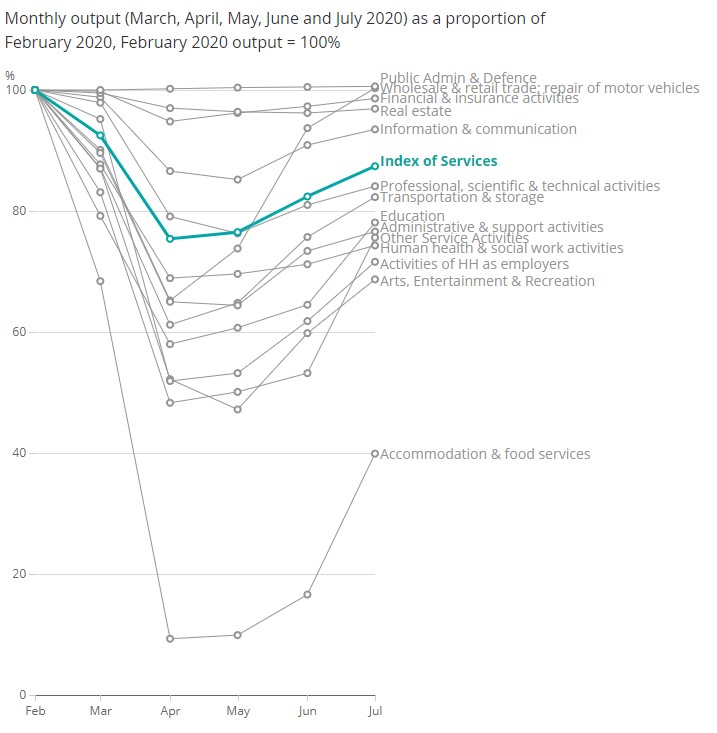Friday Sep 11 2020 08:28

5 min
Sterling stabilised after testing new six-week lows yesterday following the testy exchanges around the internal market bill, but the pound remains highly exposed to negative news around Brexit talks.
The EU Commission said the bill has damaged trust and would, if adopted, represent a serious breach of the withdrawal agreement and of international law. The British position remains resolute. The UK government legal opinion is that it remains a sovereign matter of UK domestic law.
This is serious brinkmanship, and trade talks appear close to collapse. Moreover, it is opposed by the devolved regimes in Scotland and Wales – if it passes and there is no deal, the relationship between Westminster and Holyrood will be close to breaking point and it could accelerate and heighten demands for Scottish independence.
The EU wants the offending bill pulled by the end of the month or they may launch legal action – but stopped short of saying they will walk away from the trade talks. The EU doesn’t want to be the first to walk away. Nevertheless, there has been a material escalation of no-deal risks, which was reflected in the pound’s price action yesterday.
The clock is ticking and whilst we continue to stress that a deal will always look further away than it is due to the nature of the posturing and public statements, the move on the internal market bill comes somewhat out of left-field (although it was actually reported back in Feb that the govt was working on it) and it does not pertain to the talks themselves.
We should also note that it is not guaranteed to pass both British chambers in its current form. Europe’s finance ministers are gathering today so expect a lot of headlines criticising the British – plus ca change. The good news is there is UK-Japan trade deal ‘in principle’ – hopefully that means cheaper wagu steak.
GBPUSD dropped under 1.28 but has found some support at this level and pared back losses a touch. Against the euro, the pound plunged to its weakest since March, as the single currency also found bid after the European Central Bank sounded a bit more optimistic on the economy and a little less dovish than the market had thought.
The ECB indicated it would not overreact to the appreciation of the euro, which was a green light for the currency to rally. ECB sources suggested they don’t think the euro is overvalued and don’t want to start a currency war – let’s wait and see what happens when 1.20 gets tested again.
Meanwhile, Britain’s economy faces even greater uncertainty from Brexit as it tries to rebuild in the wake of the pandemic. GDP rose 6.6% in July, but this was short of expectations and still well below pre-pandemic levels. All areas of manufacturing, particularly distillers and car makers, saw improvements, the ONS said without a hint of irony.
In July, monthly GDP was 11.7% lower than the pre-pandemic levels seen in February 2020.
The good news is that because of the way the UK measures education in GDP numbers, means things should pick up as the number of pupils returning to school rises. It also means the decline in GDP might not be so bad compared with peers as it looks.

Among the service sector, accommodation & food services remain worst hit, but we know it got a big – albeit temporary – boost in August from the Eat Out scheme.

European markets were flat on Friday after US markets pulled back on Thursday, declining for the fourth day in five, with the Nasdaq down another 2% and the and the S&P 500 falling 1.75% on the back of the previous session’s rally.
The resumption of the downtrend came as Senate Republicans failed to pass their $500bn stimulus package, with Democrats complaining it does not go far enough. The impasse has doused hopes Congress can agree a package in the near-term and could give a tailwind to bears who have the bit between their teeth. US futures are higher.
Concerns about the US economy remain. US jobless claims just aren’t heading in the right direction. The total number of people claiming benefits in all programs for the week ending August 22 was 29,605,064, an increase of 380,379 from the previous week. In the week to Sept 5th initial claims hit 884,000, unchanged from the previous week’s revised level. The previous week’s level was revised up by 3,000 from 881,000 to 884,000. US CPI numbers out later today are the main eco event to watch, but the furore over the internal market bill is not going away.
Asset List
View Full ListLatest
View all
Wednesday, 7 May 2025

4 min

Tuesday, 6 May 2025

5 min

Tuesday, 6 May 2025

4 min